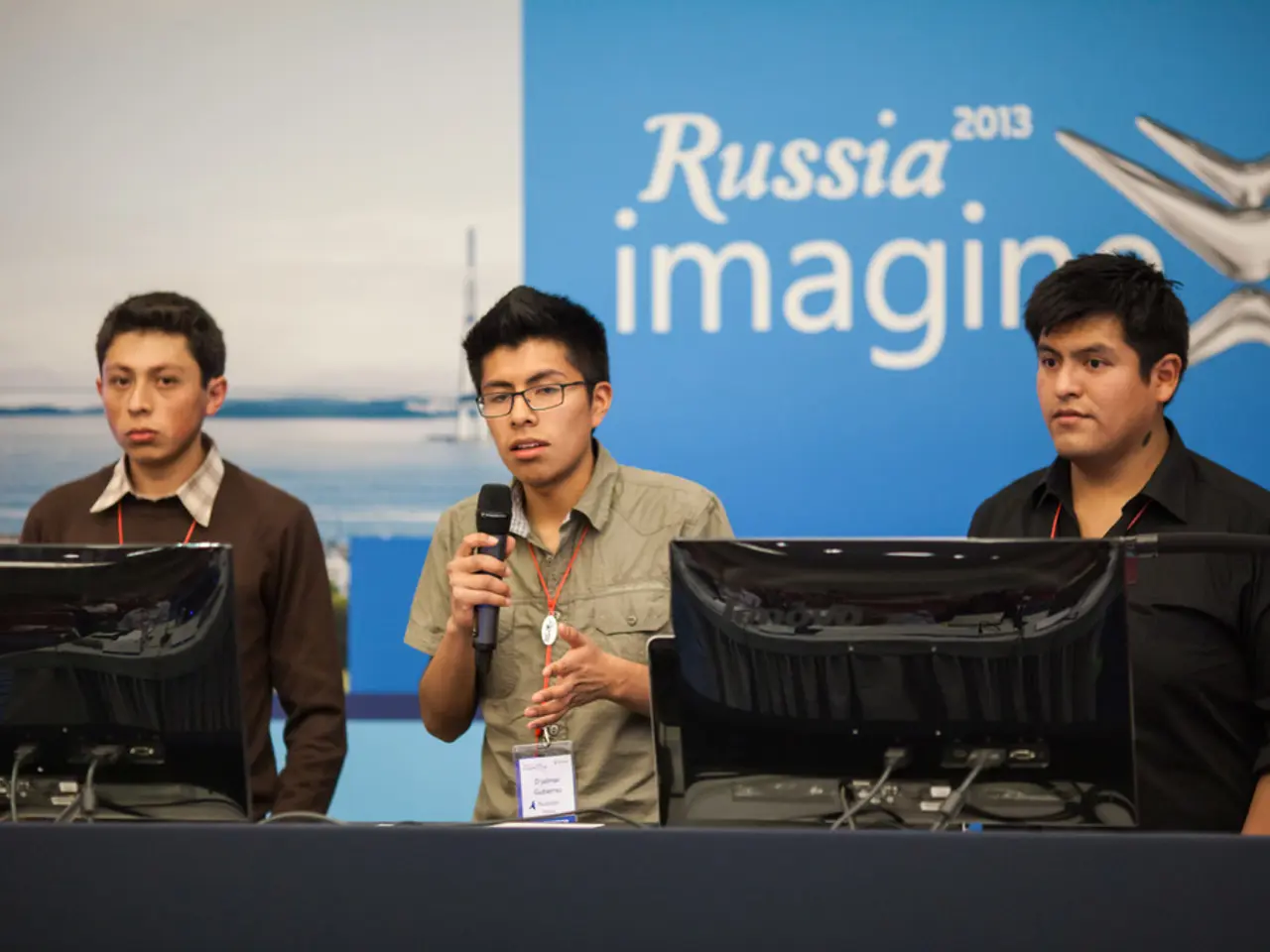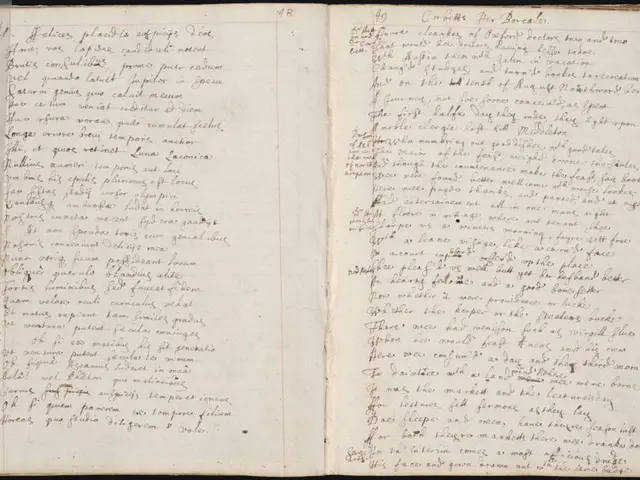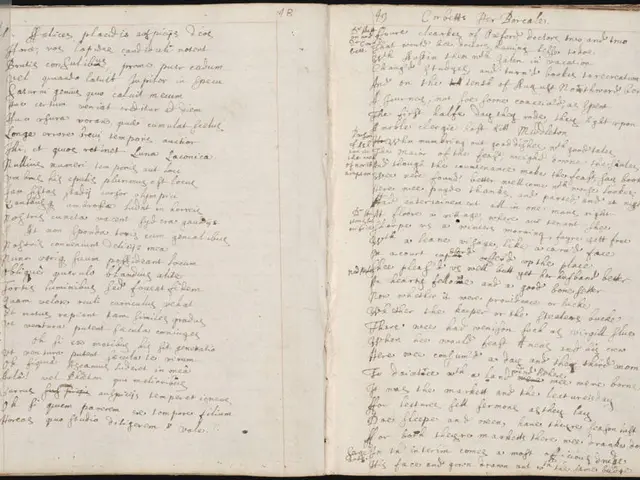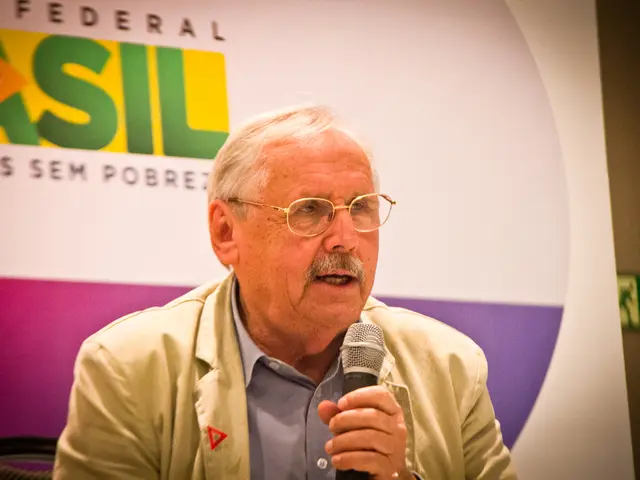International Consensus Reached on Key Points Before Alaska Summit: Key Statements Highlighted
The much-anticipated Trump-Putin summit in Alaska, scheduled for August 15, was part of a U.S. diplomatic effort to end the ongoing war in Ukraine, the bloodiest conflict in Europe since World War II.
While there were diplomatic efforts and discussions aiming to negotiate peace, there were no clear, jointly agreed-upon principles by Ukrainian President Volodymyr Zelenskyy, European leaders, and U.S. President Donald Trump ahead of the summit. Notably, President Zelenskyy was excluded from the Trump-Putin talks, raising significant concerns in Kyiv and European capitals about the nature of any deal that might be negotiated without Ukraine's direct involvement.
The first principle, as agreed upon by the leaders, was that anything related to Ukraine must be discussed exclusively with Ukraine. The second principle was the establishment of an immediate ceasefire and reliable security guarantees for Ukraine. However, the details of these principles remained vague, particularly since Ukraine was not part of the bilateral talks.
Trump had initially blamed Ukraine for delays in peace efforts but later shifted criticism more onto Putin for destructive Russian attacks, setting an early August deadline for Russia to commit to a ceasefire or face harsher sanctions. Russia's President Putin reportedly softened his maximalist demands, allegedly limiting territorial claims to the Donetsk region rather than four Ukrainian regions, and signaled some possible flexibility on demilitarization issues. However, these details remain unclear and unconfirmed, particularly since Ukraine was not part of the talks.
European leaders were reportedly striving to maintain a united front to influence the White House, highlighting the importance of transatlantic alignment and concern over the potential diplomatic gains for Putin due to the direct U.S.-Russia presidential meeting without substantive resolution.
Despite the lack of clear agreements, Trump threatened "very serious consequences" if Putin does not agree to stop the war. Trump is against including NATO in the security guarantees for Ukraine, a stance echoed by French President Emmanuel Macron who expressed the opinion that there should be a direct link between any potential territorial concessions by Ukraine and security guarantees.
Ukraine's position on potential territorial concessions remains unchanged, with President Volodymyr Zelensky continuing to emphasize that any questions of territorial integrity can only be resolved with the consent of the Ukrainian people and in accordance with the Constitution. Germany's Chancellor Friedrich Merz stated that Russia cannot demand changes to Ukraine's constitution regarding territories.
The issue of security guarantees for Ukraine was one of the key topics discussed ahead of the summit. Donald Trump expressed support for the idea and the readiness of the U.S. to participate. French President Emmanuel Macron also echoed this stance, stating that territorial questions under Ukraine's jurisdiction cannot be subject to negotiations. The leaders reportedly reached a common understanding that NATO should not be the only security guarantee.
Zelensky emphasizes that Russia is not seeking peace, but rather the occupation of Ukraine, and calls for further pressure to achieve peace. He warns partners about "Putin's bluff," claiming that he is trying to create the impression that sanctions are ineffective, although they are causing significant damage to the Russian economy.
In sum, while there were diplomatic efforts and discussions aiming to negotiate peace, there were no clear, jointly agreed-upon principles by Zelenskyy, European leaders, and Trump ahead of the Trump-Putin summit, especially given Ukraine’s exclusion and lack of direct input into the talks. The question of potential territorial concessions in Russia's war against Ukraine remains a topic of active discussion.
- The lack of Ukrainian President Volodymyr Zelenskyy's participation in the Trump-Putin summit raised concerns about the negotiation of principles for war-and-conflicts resolution, specifically in the context of policy-and-legislation regarding Ukraine.
- European leaders are advocating for unity to influence discussions on Ukraine's war-and-conflicts, expressing concerns over politics surrounding the Trump-Putin summit and general-news reports of possible territorial concessions.








